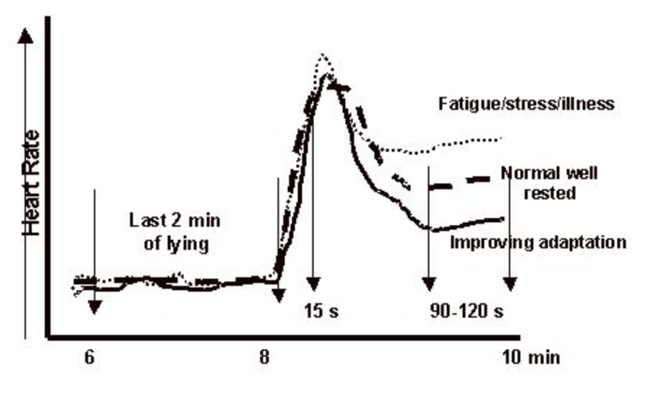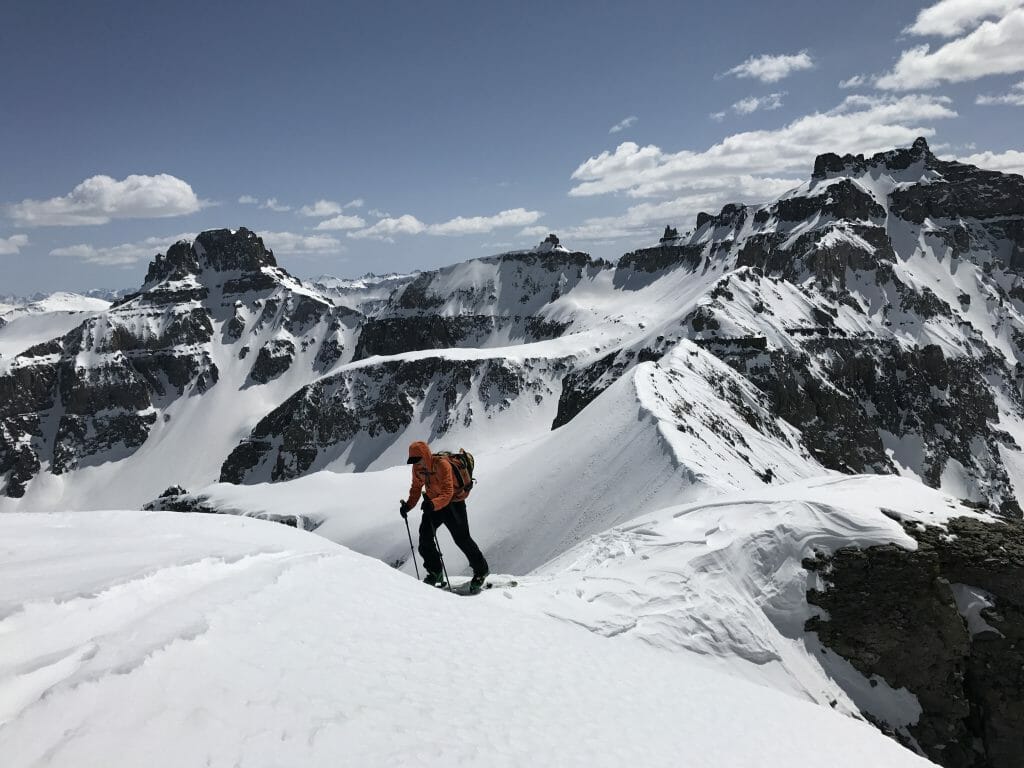The simple but time-consuming Rusko orthostatic test was developed by the famed Finnish exercise scientist Heikki Rusko as a way to monitor for overtraining among high-level cross-country skiers at training camps. It requires only a basic heart rate monitor with real-time display. Here is how it works:
- At the same time each day, usually upon waking in the morning and after a trip to the bathroom, the athlete lies supine for 5 minutes and notes the average heart rate level during the last 2 minutes.
- The athlete then stands up. Immediately after standing, and while remaining still, the athlete notes their heart rate after 15 seconds, 90 seconds, and 120 seconds.
- The athlete compares the average heart rate of the last 2 minutes spent supine with the average heart rate of the last 30 seconds of standing.
A well-rested, fit athlete will display a low resting heart rate, a rapid heart rate response in the first 15 seconds of standing, and a rapid fall in heart rate during the next minute. Whether the heart rate rises or drops during the final 30 seconds is also a good indicator that there has been a positive training adaptation. Dropping indicates a higher fitness and/or recovered state. This test works because your heart rate is controlled by your nervous system, which is one of the first responders to stress. The science behind this test is detailed in many places so we are only going to address the use of the test.

The test is relative only to the individual, and no comparisons can or should be made to others. You should establish a baseline of testing during a period of low training stress to see what your “rested state” heart rate response is like. After a few months of routine data collection, you will see trends and be able to relate the test to your perceptions. This test has proven fairly reliable in our experience. It can help guide your training by eliminating self-doubts on those days when you are just not sure if you should be resting or training. It can be particularly helpful in avoiding a downward spiral into overtraining.
The Rusko orthostatic test is not perfect, however. The nervous system is sensitive and complex and responds to other inputs than just your training. Had a bad dream? Had a fight with a friend? Dreading a test at school? Don’t bother with this test then. It allows you another means of dispassionately assessing your preparedness for training. Its real drawback is that it requires a relaxed several minutes to perform. You can’t be late for work and get any meaningful info from this test. It is highly subject to your emotional state of arousal. If you are nervous about the test coming back negative, it almost surely will.
Interested in learning more about recovery-monitoring tools? Read “Why We Stopped Relying on HRV Apps” next.


2 Comments
Pingback: Making the best recovery test even better | Scott Semple
Pingback: Making the best recovery test even better | Redline Alpine